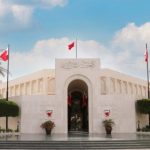Subsidized wheat bran, also known as “shwar,” distributed by the Bahrain Flour Mills Company (BFMC) to livestock farmers in Bahrain is not reaching its intended recipients. Instead, a network of individuals and businesses is taking advantage of the government support system by illegally obtaining and reselling the subsidized bran at inflated prices. This black market has been confirmed by the BFMC, who has expressed concerns about the disruption of the subsidy’s original purpose. Farmers have also reported being charged up to BD 6 per bag for bran, which is more than double the official rate.
An investigation conducted by the Alayam newspaper has revealed concrete evidence of this black market activity. Several feed stores were found selling BFMC-distributed wheat bran at prices ranging between BD 3 and BD 3.5 per bag, still higher than the official rate. The issue arises from intermediaries who purchase bran on behalf of farmers but sell the surplus bags on the black market rather than delivering them to the farmers. This practice has been ongoing for some time and primarily benefits hobbyist breeders and small-scale farmers who do not qualify for direct subsidies.
The market regulation system that was initially established to stabilize prices has now fallen into the hands of resellers who control prices in the black market. Resellers manipulate prices across various regions, with some places selling bran at double or triple the BFMC’s official rate. Conditional sales have also been introduced, where resellers limit bran quantities for unfamiliar buyers and reserve larger amounts for regular customers. This situation has led to significant financial hardship for farmers, with many being forced to leave their profession.
The BFMC is urging authorities to intervene and address this issue promptly, as the black market is causing harm to Bahrain’s livestock farming sector. The organization has called for stronger regulations to ensure that subsidized bran reaches legitimate recipients, including livestock farmers and agricultural businesses. Farmers are also calling for stricter enforcement and regulation to protect their livelihoods from further exploitation. It is crucial for authorities to take swift action to prevent further disruption of the subsidy’s original purpose and to alleviate the financial strain on farmers.
In conclusion, the exploitation of the subsidized wheat bran distribution system in Bahrain by third-party sellers is a concerning issue that needs immediate attention. The black market activity is not only disrupting the subsidy’s intended purpose but also causing significant financial hardship for legitimate livestock farmers. The BFMC’s call for stronger regulations and enforcement is crucial to ensure that the bran reaches its rightful recipients and to protect the livelihoods of farmers. Urgent intervention from authorities is needed to address this problem and prevent further exploitation of the subsidy system in Bahrain’s livestock farming sector.











